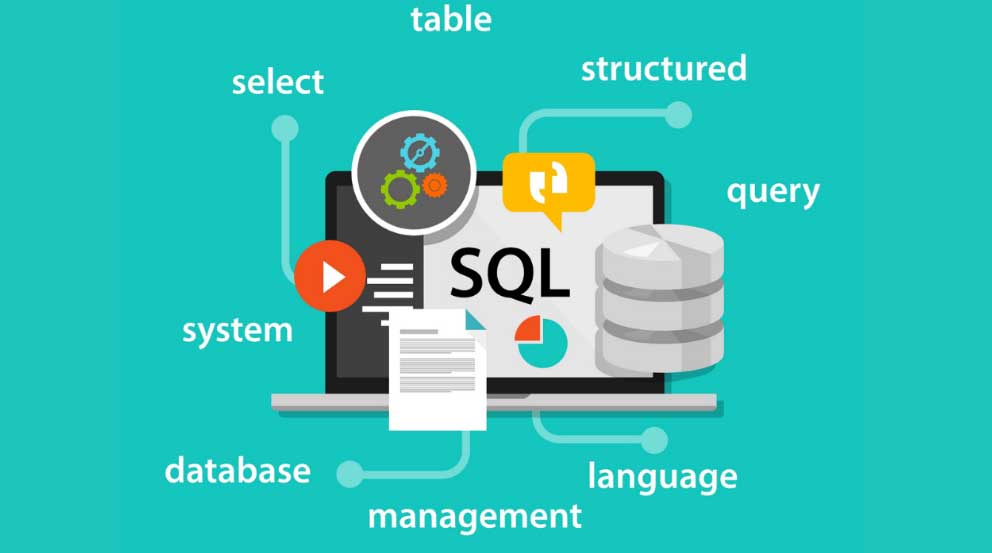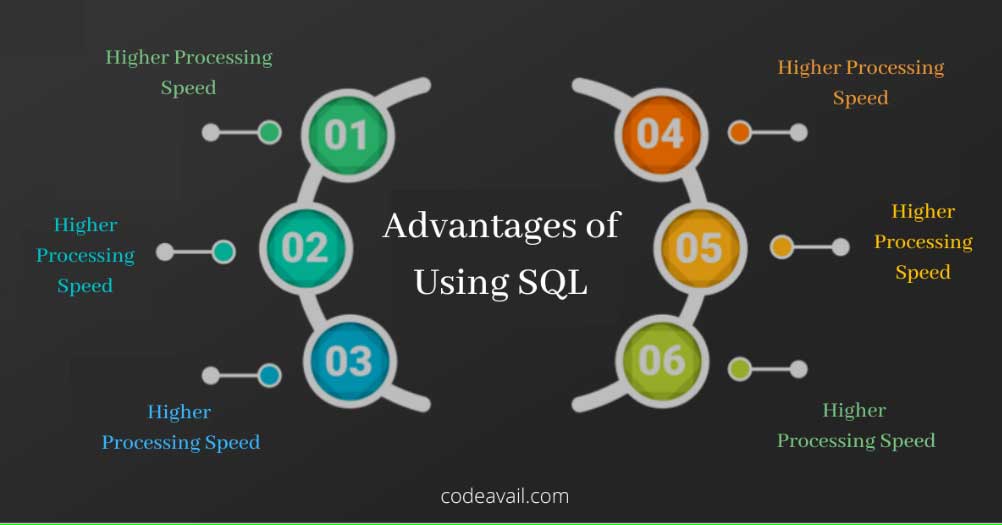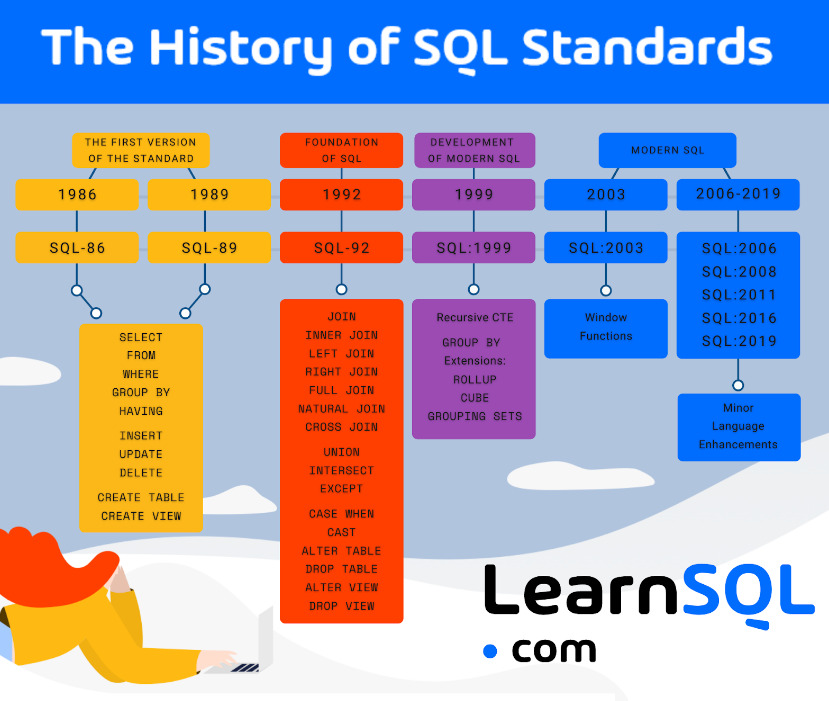Structured Query Language (SQL) is used to store and manage data in a relational database. Information is kept in tables, with rows and columns showing numerous data attributes and diverse relations between data values. With SQL statements, you can keep, update, delete, search, and restore information from a database. In addition, SQL will help you manage and improve database performance. Due to the popularity and efficiency of this language, leading software providers offer SQL development services.

Why use SQL?
SQL is not a programming language, so you cannot write an app or a website in it. However, accurate site performance (backend) is impossible without queries. Searching for information on Google is also an SQL use case. Set the parameters relevant to you, send a request to the server – and get an immediate response. Seeing results matching your query is pure magic, isn’t it?
Key SQL users
SQL is extremely beneficial, and that’s why many professionals have mastered it. The main SQL users are:
-
Analysts and product marketers
With the knowledge of this language, they become independent of programmers and SQL developers. They can receive and process data on their own.
-
Developers and testers
With SQL, these tech experts design databases for fast and reliable data management and improve websites and apps.
-
Heads of departments and managers
SQL advantages allow senior staff members to access databases independently, control the work of their company, and receive real-time information on the current state of affairs.

What makes SQL development beneficial?
The key benefits of SQL development are:
-
Speed
SQL operations take very little time. Therefore, users can quickly and efficiently retrieve, process, or store data. SQL deals with massive amounts of information promptly. You can carry out such basic operations as deletion, insertion, and data manipulation at lightning speed.
-
Portability
You can use SQL on servers, PCs, portable devices, and laptops. It’s highly portable, which makes it an excellent choice for data transfer between devices. DBMSs run on a variety of computing systems, from mainframes and midrange systems to personal computers, workstations, and laptops. They work on individual PCs, in local and corporate networks, and even on the Internet. As SQL-based apps designed for single-user operating systems evolve, SQL developers can port them to larger systems. Information from corporate relational databases can be loaded into databases of individual departments or users. Finally, with SQL, you can test a database app prototype on a low-cost PC before porting it to an expensive multi-user system. So, portability is a meaningful benefit of SQL development.
-
Client-server architecture
SQL is an efficient vehicle for building apps using a distributed client-server architecture. It serves as a bridge between the client system that interacts with the user and the back-end system that manages the database, allowing each participant to focus on their functions. Furthermore, SQL makes personal computers act as clients to network servers or larger mainframe databases. This allows access to corporate data from apps running on personal computers.
-
Enterprise app support
All complex enterprise apps developed for large companies and organizations use SQL databases to store and manage information. In the 1990s, because of the Year 2000 problem, large firms massively moved from their home-grown systems to apps provided by such vendors as SAP, Oracle, PeopleSoft, Siebel, etc. Those software solutions offered useful SQL features. The data processed by such apps (orders, sales, customers, warehouses, etc.) usually has a structured record view with fields easily converted to SQL rows and columns. By building their apps on top of enterprise-level SQL databases, software vendors avoid the need to develop their own data management systems and take all the advantages of SQL development. Since all major enterprise apps require SQL databases to run, the increase in sales of such solutions results in a growing demand for new database software.
-
Dynamic data determination
Another advantage is that you can dynamically modify and expand the database structure. Users can even access the database contents while you are performing this task. This is an amazing SQL advantage over static DDLs that deny access to a database while its structure is being changed. In this way, SQL provides maximum flexibility. It allows a database to adapt to changing requirements without interrupting the real-time app performance.
-
Various data views
Users get different views of a database structure and contents. This is a top reason for using SQL on a software project and another meaningful advantage of SQL development. For instance, an SQL development company can design a database in such a way that each user will only see data related to their department or sales region. In addition, data from different parts of a database can be combined and given in a simple table. All this enhances the security of a database that can be customized to the specific needs of individual users.
-
Interactive queries
As an interactive query language, SQL provides users with immediate access to information. With SQL, you can get answers to the most complex queries in minutes or seconds, whereas it would take days or weeks for a programmer to write a corresponding program. Since SQL allows for interactive querying, data becomes more accessible and can help us make more informed decisions. The interactivity of SQL in the early stages of its evolution was one of the major benefits over non-relational databases. It has preserved its efficiency with object-oriented databases.
-
Independence from specific DBMSs
Considering the above benefits, leading DBMS vendors have been using SQL over the past decade. A DBMS that does not support SQL cannot be successful. A relational database and programs running on it can be transferred from one DBMS to another one with minimal changes. You needn’t retrain the personnel, either. Software solutions included in DBMSs for PCs (query writers, report generators, and app generators) work with many types of relational databases. Thus, SQL provides independence from specific DBMSs.
-
SQL standards
In 1986, the American National Standards Institute and the International Organization for Standardization introduced the official SQL standard. What’s more, SQL is one of the Federal Information Processing Standards (FIPS). Therefore, large government development contracts mention compliance with it as one of the principal requirements in the computer industry. Many international, government, and industry groups have contributed to the standardization of various SQL components, such as programming interfaces and object-oriented extensions. Over time, some of these initiatives have become part of the ANSI/ISO standard. They serve as an official seal of approval for SQL, and they have sped up its market penetration.
Credits to LearnSQL.com
-
Industrial infrastructure
Perhaps the main advantage of SQL development is the emergence of an entire SQL-based industrial infrastructure, including RDBMSs based on this language. Another important component is enterprise apps that use SQL and require an SQL database. In addition, report generators, data entry tools, database design tools, software tools, etc. make it easy to use SQL. Many experienced SQL programmers are a vital part of this infrastructure. Another relevant feature is easily accessible SQL training and help. Many firms specialize in SQL consulting, code optimization, and code performance. All these constituents reinforce each other and make SQL a success. To put it simply, given data management challenges, the easiest, least risky, and cheapest solution comes from SQL. That is the major benefit of using SQL development in your project.
Conclusion
For decades, IT professionals have relied on relational databases and SQL. They have evolved to fit innovative hardware and software, operating systems, networks, and programming languages. Even though many specialists have tried to dethrone them, the relational model and SQL remain the dominant force in data management. Given the SQL advantages listed above, using SQL on a project is essential for databases.




































